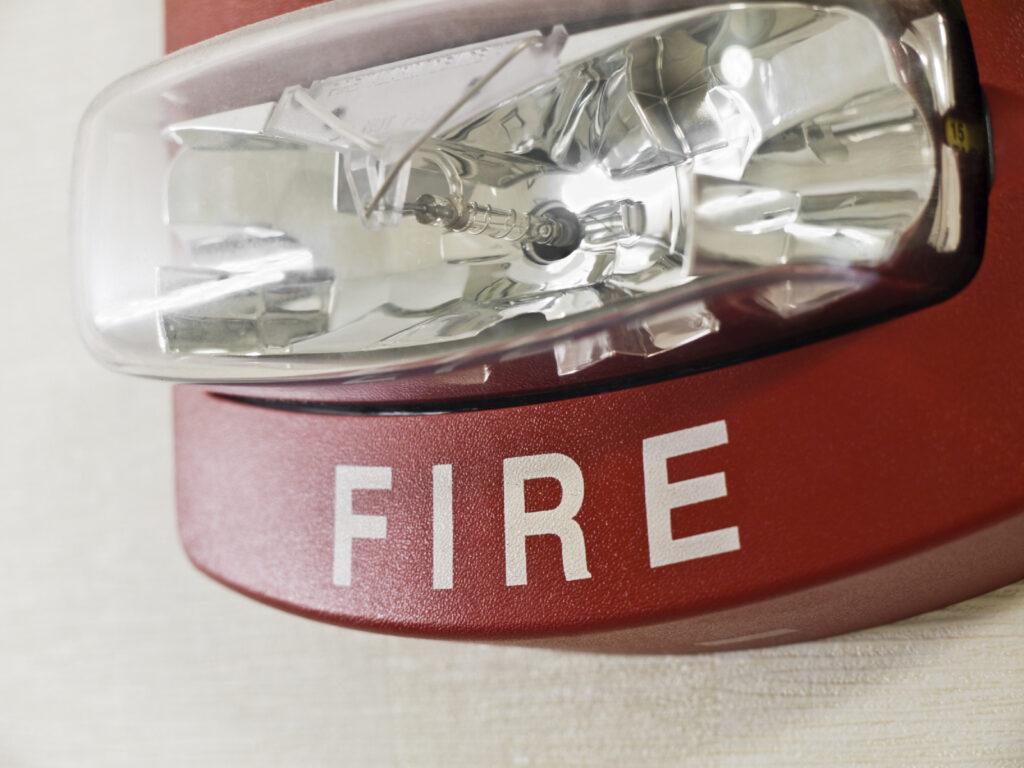Emergency Responder Radio System Design & Installation
 Reliable communication is vital during emergencies, particularly for first responders.
Reliable communication is vital during emergencies, particularly for first responders.
While firefighters, paramedics, and other emergency responders have traditionally relied on two-way radios during critical events, they don’t always work as well as they should.
The North Carolina Building Code Council now requires emergency responder radio communication systems (ERRCS) in all new commercial and high-rise residential buildings or buildings undergoing major renovations.
In putting these regulations in place, the state is following state and national fire codes and the International Fire Code, which it had previously adopted, ensuring first responders have dependable communication during emergencies.
City Fire & Safety designs and installs ERRC systems that comply with all local, state, and federal requirements. We also offer surveying of newly constructed buildings to ensure they have proper radio coverage as mandated by North Carolina law.
Contact City Fire & Safety for a facility evaluation or to learn more about emergency response radio systems for your commercial building.
What Are Emergency Response Radio Systems?
When seconds count, an emergency radio system improves communication between emergency responders, especially firefighters, and building occupants during emergencies.
Construction characteristics of large commercial structures often interfere with two-way radio functioning, leaving responders without a reliable means of communication and making them and the people they’re trying to help vulnerable to injury or death.
Thick walls, electromagnetic interference, antenna problems, and limited operational range can leave first responders unable to share critical information or request backup or instructions.
Advanced technologies like ERRCS help ensure public safety radio signals are strong enough for first responders to receive and transmit crucial communications during emergencies.
The Benefits of Installing ERRCS
Together with meeting various code requirements, an ERRCS offers several benefits that ensure communication remains unbroken and effective, including:
- Enhanced radio communications: ERRCS typically have a more stable and reliable connection than two-way radios, so communication lines remain open where cellular and internet networks might fail.
- Improved response times: Real-time communication allows for faster response times by firefighters, police, and medical services in life-threatening situations.
- Reduced risk of injury: There’s a lower risk of injury to occupants and responders as parties receive essential information promptly, even in remote or isolated locations.
- Improved emergency coordination: In an emergency, priority channels can be established to ensure critical information is communicated without delay or interruption.
Routine testing and maintenance of an ERRCS ensures the system is always operational and ready for emergencies.
Our ERRCS Installations
City Fire & Safety surveys, designs, and installs ERRCS that boost critical radio signals in your commercial structure. As part of your business’s comprehensive fire protection strategy, we install, test, and maintain these critical systems to help you protect lives and assets.
Together with our other fire sprinkler and alarm installations, you can be sure your building is better protected from fire disasters.
Contact City Fire & Safety to schedule an appointment with our team.
Why Choose Us for Emergency Response Radio Installation in North Carolina?
American-owned City Fire & Safety can help your business keep emergency responders connected with an ERRCS that enhances safety, meets extensive North Carolina code requirements, and provides confidence in your building’s security.
For nearly 40 years, we’ve been the area’s single-source provider of fire safety systems, including fire sprinklers, fire alarms, fire extinguishers, fire suppression, and special hazard protection.
When you need quality fire protection services for your North Carolina business, choose City Fire & Safety. Call 1-800-453-4394 to schedule service.








